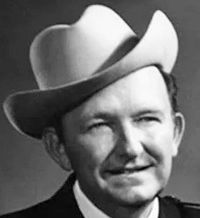A Quote by Michel de Montaigne
It is equally pointless to weep because we won't be alive a hundred years from now as that we were not here a hundred years ago.
Related Quotes
A Hundred Years From Now Well a hundred years from now I won't be crying A hundred years from now I won't be blue And my heart would have forgotton she broke ever vow I won't care a hundred years from now Oh, it seem like yesterday you told me You couldn't live without my love somehow Now that you're with another it breaks my heart somehow I won't care a hundred years from now * Refrain Now do you recall the night sweetheart you promised Another's kiss you never would allow That's all in the past dear it didn't seem to last I won't care a hundred years from now * Refrain
Seventeen's not so young. A hundred years ago people got married when they were practically our age." "Yeah, that was before electricity and the Internet. A hundred years ago eighteen-year-old guys were out there fighting wars with bayonets and holding a man's life in their hands! They lived a lot of life by the time they were our age. What do kids our age know about love and life?
Raphael painted, Luther preached, Corneille wrote, and Milton sang; and through it all, for four hundred years, the dark captives wound to the sea amid the bleaching bones of the dead: for four hundred years the sharks followed the scurrying ships; for four hundred years America was strewn with the living and dying millions of a transplanted race; for four hundred years Ethiopia stretched forth her hands unto God.
He who today utters a bold truth that seems to shock some old institution with the premonition of destruction, and that scares men from their propriety, will a hundred years hence be regarded as a remarkably conservative man. And yet the people who stand peculiarly upon what they call the foundations of conservatism, and hold to hard, practical facts, now stand upon that which one hundred years ago was rank heresy.
Today it is not alive. What, then, is this experience of humanism? With the above survey I have tried to show you that the experience of humanism is that — as Terence expressed it — “Nothing human is alien to me”; that nothing which exists in any human being does not exist in myself. I am the criminal and I am the saint. I am the child and I am the adult. I am the man who lived a hundred thousand years ago and I am the man who, provided we don't destroy the human race, will live hundred thousand years from now.
I live for the moment. I'm basically a Buddhist-type person. I'm just here right now, and I don't think about what's going to happen a hundred years from now. I try to concentrate on what's going on right now. But I'm really trying to run this company like it is going to be here a hundred years from now. That's what's important.










































